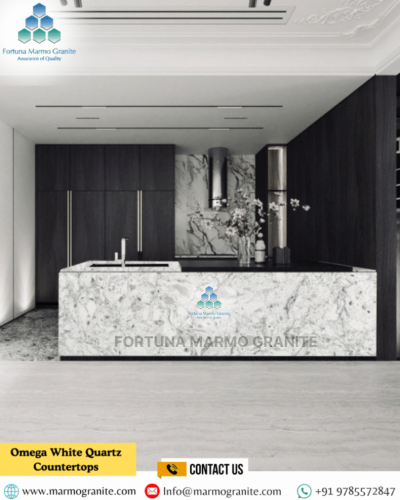Quartz Countertop Thickness: How to Choose the Ideal Size for Style and Durability
Quartz Countertop Thickness have surged in popularity in recent years, becoming a preferred choice for homeowners, interior designers, and architects seeking both beauty and functionality. Their rise is largely due to quartz's impressive durability, resistance to stains and scratches, and low maintenance compared to natural stones like granite or marble. Quartz also offers remarkable aesthetic versatility, available in a wide range of colors, patterns, and finishes that suit virtually any design style—from ultra-modern kitchens to classic bathroom vanities. While many focus on these visible qualities, one critical factor often overlooked during selection is the thickness of the quartz slab.
The thickness of a quartz countertop is more than a technical detail—it significantly impacts the look, feel, and sturdiness of the surface. Thicker slabs convey a sense of luxury and robustness, while thinner slabs create a sleeker, more contemporary appearance. Thickness also affects structural performance, influencing the countertop's ability to handle daily wear, weight loads, and potential impacts. Choosing the right thickness requires balancing aesthetics, functionality, and budget. While thicker slabs may cost more and be heavier to install, they offer enhanced durability and a premium visual appeal.


The Impact of Thickness on Style
The Impact of Thickness on Style
Sleek and Modern (2 cm): The slim 2 cm profile suits contemporary and minimalist designs perfectly. Its thinner edge creates a clean, streamlined look, enhancing the sense of spaciousness in a room. This thickness works especially well with full overlay cabinets, where doors and drawer fronts completely cover the cabinet frame, emphasizing sleek lines.
Substantial and Traditional (3 cm): The 3 cm countertop provides a more substantial presence, conveying luxury and traditional elegance. Its thicker edge adds visual weight and complements classic or transitional kitchen designs. This thickness pairs well with framed cabinet styles, where the cabinet frame is visible around doors and drawer fronts, creating a layered, detailed aesthetic.
Statement and Unique (Laminated Edges): Laminated edges mimic the look of a thicker countertop (4 cm, 5 cm, or more) without the added weight and cost of a solid slab. Fabricators bond two or more thinner quartz pieces at the edges. This technique allows for creative profiles, including waterfall edges, where the countertop extends vertically down the sides of a cabinet or island, creating a dramatic focal point.
The Impact of Thickness on Durability
Structural Integrity: Thicker slabs naturally offer greater structural strength. A 3 cm countertop resists bending or flexing under stress better than a 2 cm slab. This is especially important for larger countertops with fewer supports or overhangs for seating.
Resistance to Chipping and Cracking: The added thickness improves impact resistance. While quartz is durable, accidental impacts from heavy pots or dropped items are less likely to cause chips or cracks in a 3 cm slab than in a thinner one.
Support Requirements: Thinner countertops, particularly 2 cm slabs, often need extra support from cabinetry or plywood substrates to prevent sagging. This can increase both installation complexity and cost. Thicker 3 cm slabs usually need less support, simplifying installation in many cases.
Fabrication and Handling: All quartz slabs require professional fabrication and installation. However, thicker slabs are heavier and more challenging to maneuver, which may slightly affect installation time and cost.
Key Considerations for Choosing the Right Thickness
Budget:
Additionally, Generally, thicker quartz slabs will have a higher material cost due to the increased amount of material used. Installation costs might also be slightly higher for thicker slabs due to the increased weight and handling requirements. Determine your budget early in the process to narrow down your options.
- Cabinetry and Support Structure: In addition, Evaluate the strength and stability of your existing or planned cabinetry. If you have a robust and well-built cabinet system, you might be able to consider a 2 cm countertop, especially for smaller spans. However, for larger islands or countertops with significant overhangs, 3 cm is generally recommended for optimal support and stability.
Overall Design Aesthetic:
Moreover, Consider the overall style and feel you want to create in your space. Do you prefer a sleek, modern look or a more substantial, traditional feel? The countertop thickness should complement the other design elements, such as cabinet style, flooring, and backsplash.
- Intended Use and Traffic: Consequently, Think about how the countertops will be used and the level of traffic they will endure. High-traffic areas, such as busy kitchens, might benefit from the added durability and impact resistance of a 3 cm countertop.
- Size and Span of Countertops: For large countertops or those with long unsupported spans, the increased structural integrity of a 3 cm slab is highly recommended to prevent flexing and potential cracking.
| Feature | 1 cm (¾ Inch) | 2 cm (¾ Inch) | 3 cm (1 ¼ Inches) | Laminated Edges (using 2cm or 3cm) |
|---|---|---|---|---|
| Common Use | Vertical surfaces (backsplashes, wall cladding) | Countertops (with good support), smaller areas | Most countertops, islands, high-traffic areas | Achieving thicker appearances (4cm+) for countertops |
| Style/Aesthetics | Very sleek, minimalist | Sleek, modern, streamlined | Substantial, traditional, luxurious | Highly customizable, can mimic very thick slabs |
| Durability | Lower structural integrity, more prone to damage | Moderate durability, requires good support | High structural integrity, excellent impact resistance | Inherits durability of base slab (2cm or 3cm) |
| Support Needs | Requires significant support for countertops | Requires good support, may need plywood substrate | Generally requires less extensive support | Depends on the base slab thickness |
Conclusion
In conclusion, selecting the right quartz countertop thickness is a crucial decision that balances both style and durability, ensuring your kitchen or workspace not only looks stunning but stands the test of time. Moreover, Thicker slabs offer greater strength and a more luxurious, substantial appearance, while thinner options can provide a sleek, modern aesthetic and may be more cost-effective. In addition, Understanding the functional requirements of your space, alongside your design preferences, will help you choose the ideal thickness that complements your lifestyle and enhances your home's value.
Indian Granite Supplier At Fortuna Marmo Granite, we pride ourselves on guiding our clients through this important choice with expert knowledge and personalized service. As a trusted supplier of premium quartz countertops from India, we offer a wide range of thickness options to meet diverse needs and tastes. Our experienced team ensures that every slab we provide meets the highest standards of quality and craftsmanship, helping you achieve the perfect balance of elegance and durability in your project. Yet, Whether you desire bold, thick countertops or refined, thin slabs, Fortuna Marmo Granite is dedicated to delivering excellence and satisfaction in every installation worldwide.

